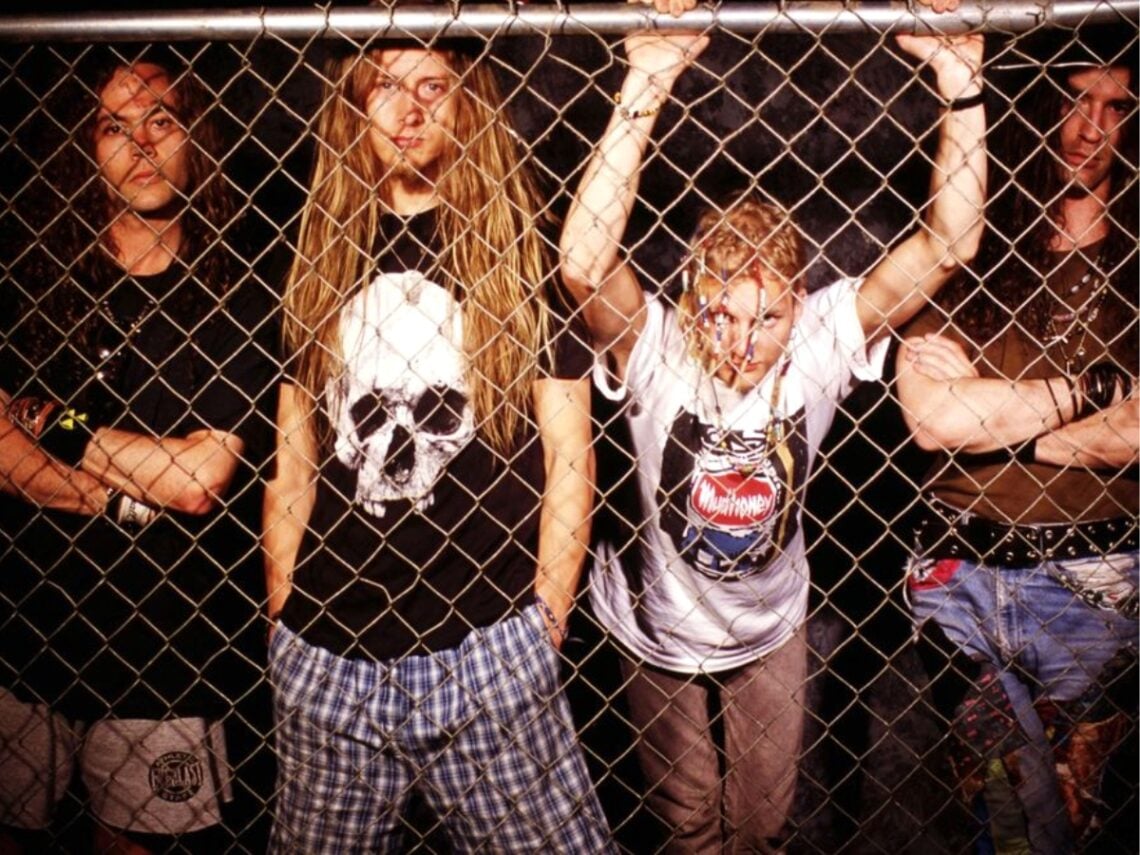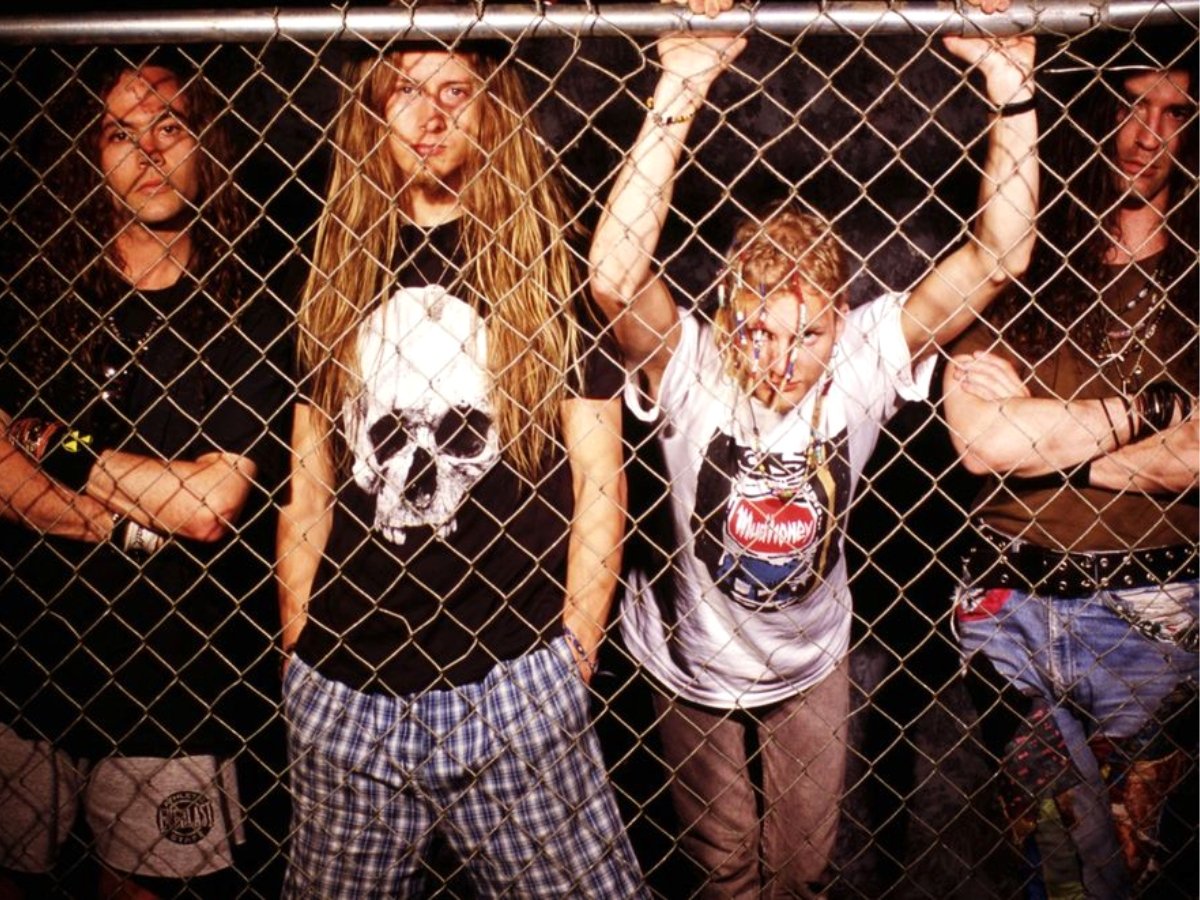
(Credit: Alamy)
Mon 23 June 2025 0:00, UK
“We’ve been waiting a long time to play this show,” Alice In Chains vocalist Layne Staley told the audience at the start of the band’s 1996 MTV Unplugged taping in Brooklyn. “We’d like to thank you all for coming out to see it. It means a lot to us. We’re gonna have a good time and play some good songs for you. This song’s called ‘No Excuses.’”
It’s hard to overstate just how fundamental the program MTV Unplugged was to the growth and wider understanding of “grunge” music in 1990s America. Nirvana’s 1993 appearance on the show is probably the best example and arguably a “top five” moment in the history of MTV itself. It wasn’t unprecedented, though, for a band to turn its performance on the Unplugged stage into a year’s worth of fresh radio play, as rock stations were more than willing to swap in the live, acoustic versions of established hit songs to grab an expanded audience. With the volume turned down and the vocals a little more raw, some of the bare-bones songwriting and lyrical nuances of the songs also stood out a bit more, helping to re-frame perceptions of the bands that agreed to the format, which included in-their-prime Pearl Jam (1992), Stone Temple Pilots (1993), and Alice In Chains (1996).
Interestingly, it took a while for the record companies to fully understand how much they could capitalise on these extremely popular shows. Pearl Jam’s Unplugged concert wasn’t released as an official album until almost 30 years later, and STP’s performance—which might be the single most 1993 thing from 1993—is still available only as a bootleg. It wasn’t until Nirvana’s Unplugged in New York CD, which was released a year after the concert and several months after Kurt Cobain’s subsequent death in 1994, that the Unplugged idea reached its commercial apex. That album went 8x Platinum and certainly inspired the idea, two years later, of making a live Unplugged album with Alice In Chains—a grunge titan, to be sure, but also a band on the brink of collapse.
When they finally took the stage at Brooklyn’s Majestic Theatre on April 10, 1996, Alice In Chains hadn’t performed together, with vocalist Layne Staley at the mic, for almost two and a half years. Staley’s well-documented battles with drug addiction had created a dark cloud around the band, but also a growing desperation among its fans to see him well again and performing. MTV repeatedly invited the group to make their return as an Unplugged performance, and while the group did eventually come together and agree to it, it would also sadly prove to be one of their last ever appearances with Staley.
Interestingly, despite being arguably the heaviest and sludgiest of all the grunge bands (with a nod of respect to Soundgarden, who never did an MTV Unplugged show), Alice In Chains were also perhaps the best suited for a stripped-down set. The shame is that they were a bit rusty and out of practice when they finally got the chance, reportedly needing several re-dos on songs, ultimately expanding the recording time—on the night itself— to over three hours.
Often, the songs that work the best in the Unplugged format are the ones that require the most reimagining to perform, thus revealing something new. This can be seen with Stone Temple Pilots’ swinging version of ‘Sex Type Thing’ or Nirvana’s hushed take on ‘On a Plain.’ In the case of Alice In Chains’ performance, though, their night was a showcase for the god-tier acoustic grunge ballads their fans already knew and were eager to hear again: ‘Heaven Beside You’, ‘Nutshell’, ‘Rooster’, ‘Got Me Wrong.’ These songs all sound fantastic on the Unplugged album, with the voices of Staley and singer/guitarist Jerry Cantrell blending with that impossible balance of technical perfection and emotional tension.
As a kid who was glued to alternative radio in the 1990s, though, the indelible mark of Alice In Chains’ acoustic contributions to grunge—and probably the best of all the acoustic grunge songs, period—can be found in ‘No Excuses’, one of the tunes that required very little re-arrangement on the night of the band’s Unplugged taping. Originally released on 1994’s Jar of Flies, ‘No Excuses’ went to No. 1 on the US Rock charts that year, and it found a second life in ‘96, as the new version from Unplugged signalled Alice In Chains’ long-awaited return. In this way, ‘No Excuses’ straddles the line between the height of grunge’s mainstream power and its final days of relevance just a few years later. It was a song that felt ubiquitous through that entire period, with its composition and harmonies sounding equally at home in the wider alt-rock universe, whether you were a fan of REM and the Counting Crows or Screaming Trees and Metallica.
‘No Excuses’ is also a song about addiction, which feels like a requirement for any track that could represent grunge as a whole. And in this case, unlike many of his other songs, Staley’s message has a core of optimism to it. “You, my friend, I will defend,” he sings. “And if we change, well, I love you anyway.”
Related Topics
The Far Out Music Newsletter
All the latest music news from the independant voice of culture.
Straight to your inbox.
